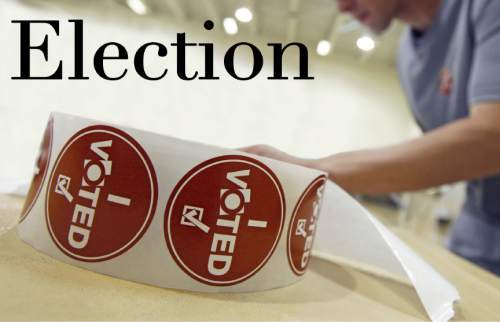This is an archived article that was published on sltrib.com in 2016, and information in the article may be outdated. It is provided only for personal research purposes and may not be reprinted.
The Utah delegation to the Democratic National Convention in Philadelphia this week will look far different than the Republican contingent at the GOP gathering in Cleveland.
While the Beehive State Republicans were overwhelmingly white Mormons — whose convention highlight was a field trip to the historic Kirtland Temple — Utah's Democratic team is made of 21 women, 18 millennials, 12 minorities, four people with disabilities, three seniors and 10 members of the LGBT community. (The latter group received help with convention expenses courtesy of a fundraiser by the gay-friendly Stonewall Democrats.)
The two delegations do, however, have one thing in common: Both overwhelmingly support candidates other than the presumptive nominees.
The Utah Republicans — big boosters of Texas Sen. Ted Cruz — offended many other delegations with their disdain for Donald Trump and their refusal even to clap for many speakers.
The Utah Democrats chiefly back Vermont Sen. Bernie Sanders. Don't expect them to try to sabotage the gathering with a scheme to overturn the results through a floor vote — like their GOP counterparts did.
But Utahn Hyrum Mathews, a Sanders delegate on the rules committee, said there will be contention at the convention, which starts Monday.
Sanders supporters, he said, will push for changes to make the nominee-selection process more democratic in the future.
At some point in Philly, he predicts, Sanders — who cruised to victory in Utah's Democratic caucus — will release his delegates in a show of unity and support for presumptive nominee Hillary Clinton.
That is starkly different than the GOP convention, where the Utahns wanted their votes to count for Cruz — who won the state's GOP caucus — despite convention leaders' ruling they would be slated for Trump because the Texan had dropped out of the race.
Mathews and other Sanders backers pushed for a rule change at the Utah Democratic Convention to punish so-called "superdelegates" who back Clinton instead of the Vermont senator.
Sanders captured nearly 80 percent of the vote from Utah Democrats, and 29 of the 37 delegates are going to Philly as Sanders delegates.
Superdelegates are chosen by virtue of their position in the party and are not bound to any candidate.
Two Utah superdelegates — party Vice Chairwoman Breanne Miller and national Committeewoman Patrice Arent — are Clinton backers. The other two — party boss Peter Corroon and national Committeeman Wayne Holland — are attending as Sanders delegates.
Mathews and other Sanders supporters wanted the superdelegates who did not back the caucus winner to lose not only their positions on the party's executive committee but also party financial help if they ran for public office.
Those proposals fizzled at the state convention, but Mathews said there will be a push at the national convention to do away with superdelegates.



